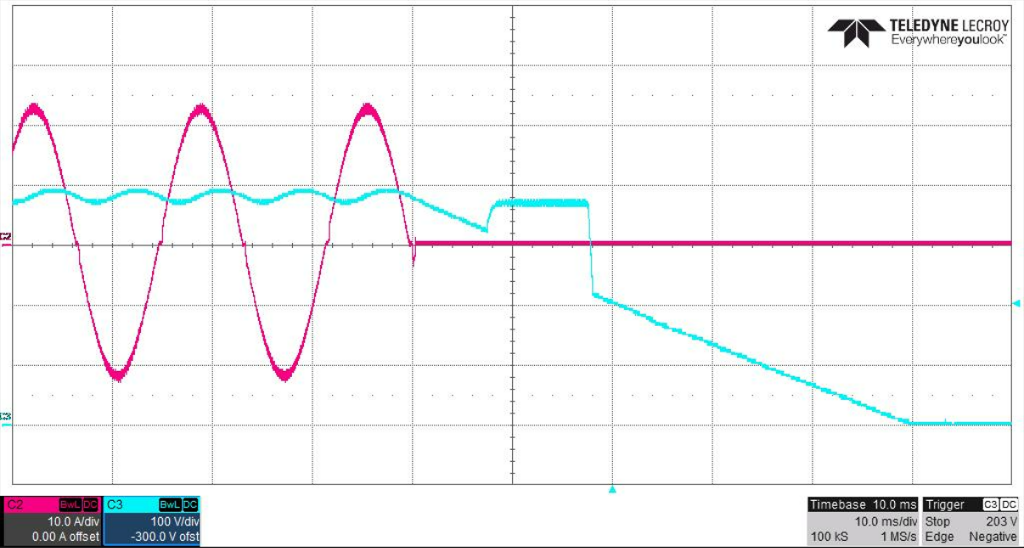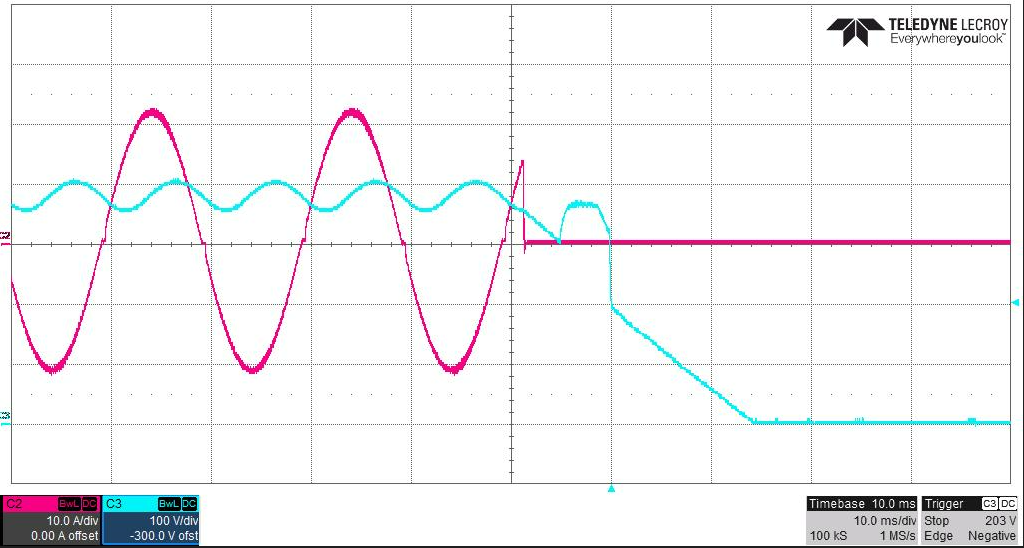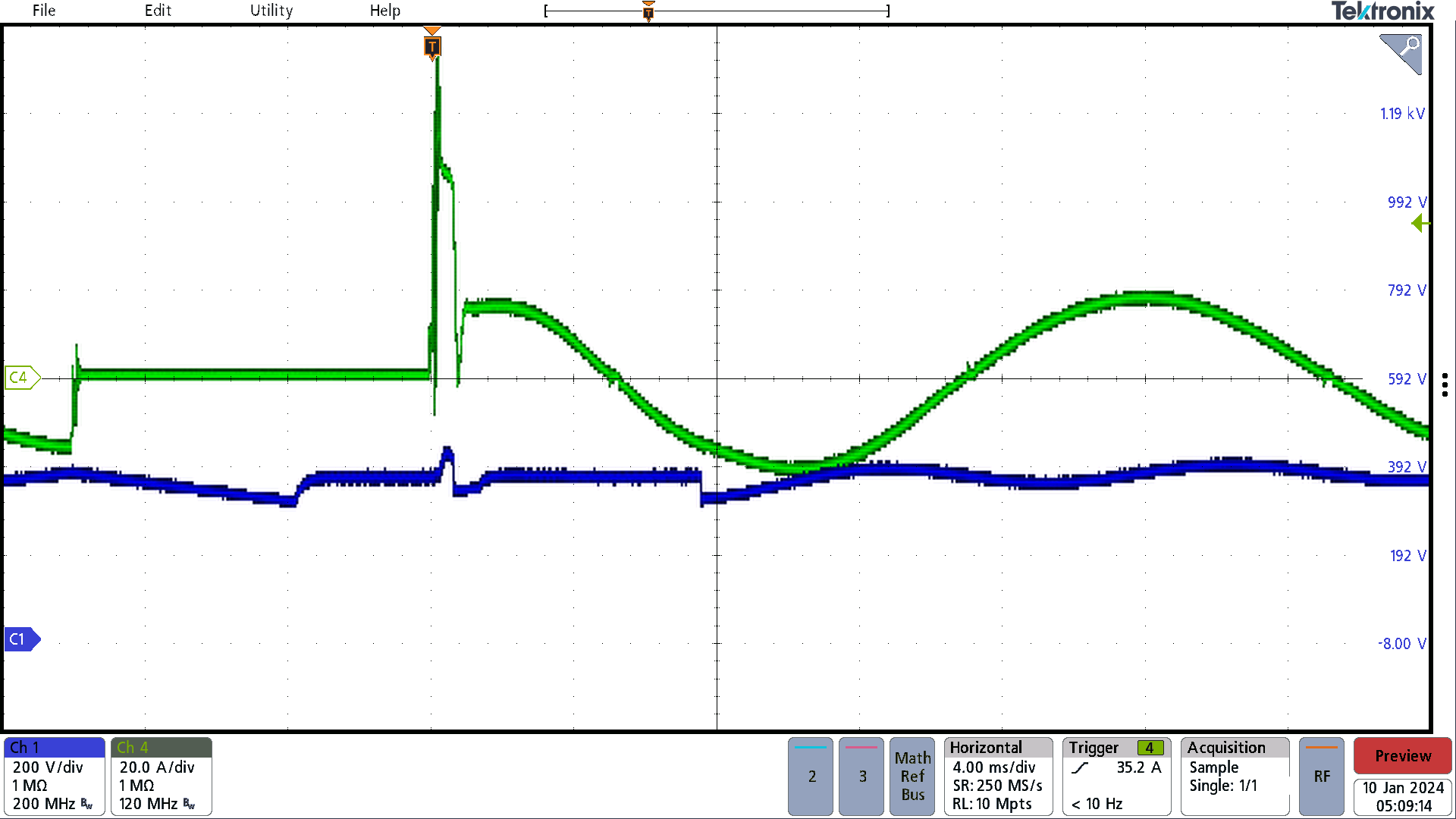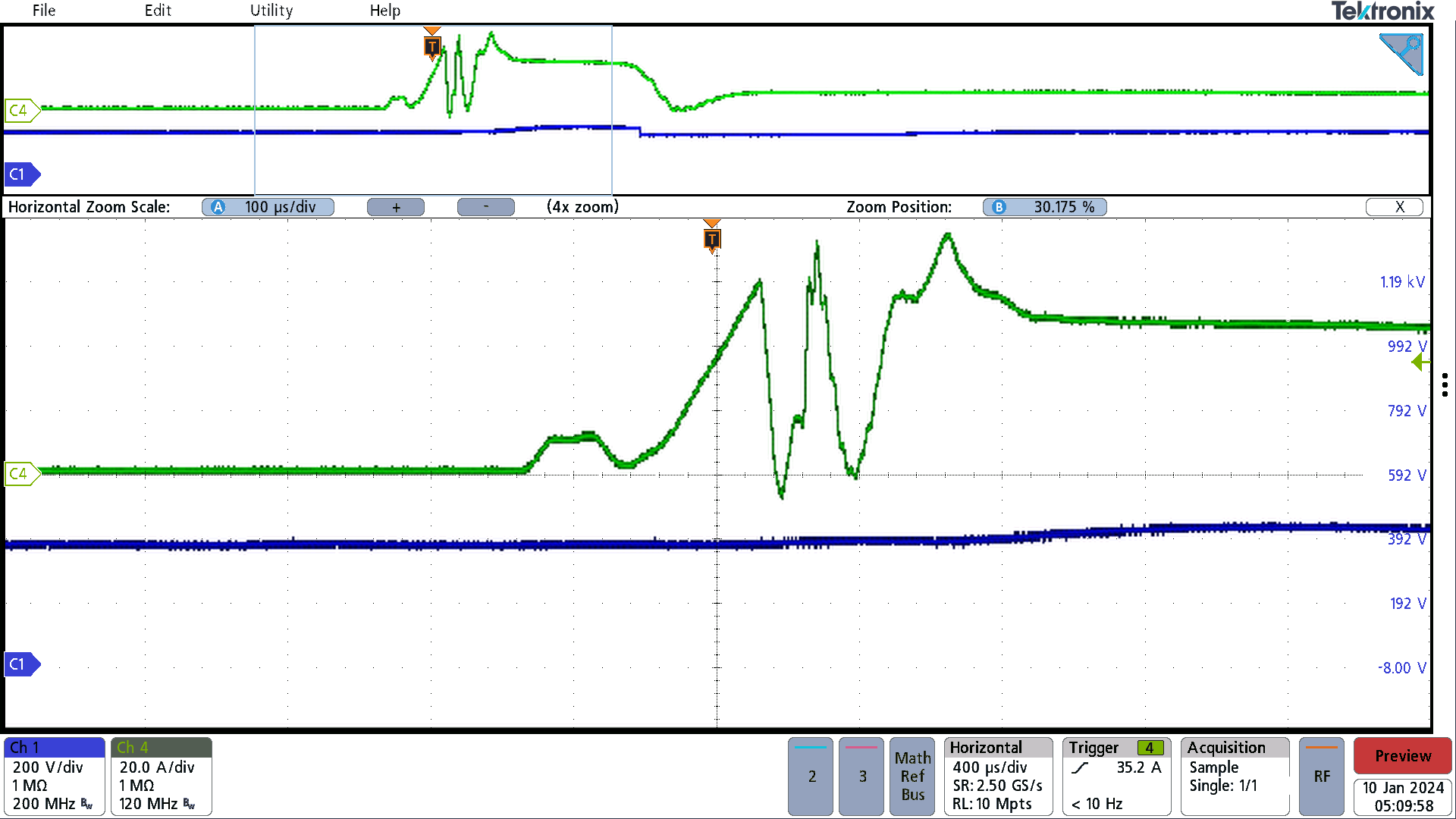TIDT369B November 2023 – July 2024
4.8 AC Drop Test
 Figure 4-29 AC Drop at 120 VAC, 1800 W Load (Blue: Vout, Pink: Iin)
Figure 4-29 AC Drop at 120 VAC, 1800 W Load (Blue: Vout, Pink: Iin) Figure 4-30 AC Drop at 240 VAC, 3600 W Load (Blue: Vout, Pink: Iin)
Figure 4-30 AC Drop at 240 VAC, 3600 W Load (Blue: Vout, Pink: Iin) Figure 4-31 Re-rush Current When AC Comes Back From 10ms Drop Out (Green: Iin, Blue: Vout)
Figure 4-31 Re-rush Current When AC Comes Back From 10ms Drop Out (Green: Iin, Blue: Vout) Figure 4-32 Zoom In of Re-rush Current
Figure 4-32 Zoom In of Re-rush Current